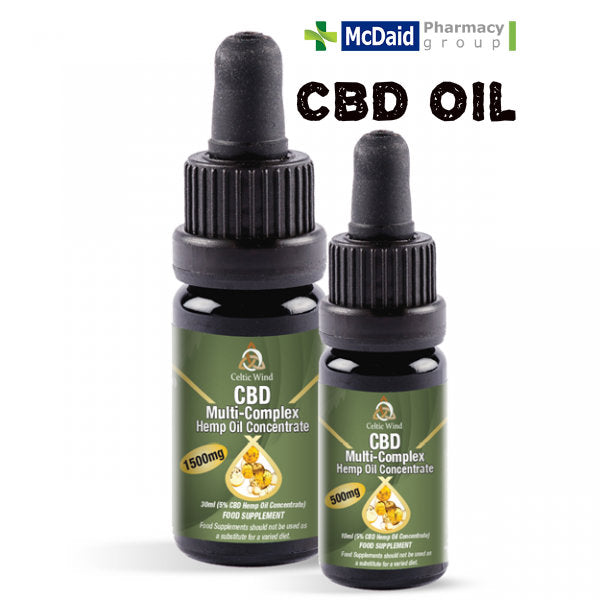CBD and the Cytochrome P-450 Enzyme System
Research has clearly shown that cannabidiol, or CBD, has the potential to effectively treat many different ailments by manipulating the endocannabinoid system with very few unintended effects. However, some of cannabidiol’s side effects can be dangerous if they are not properly understood. One such effect is the inhibition of the cytochrome P-450 enzyme system.
What is the Cytochrome P-450 System?
The cytochrome P-450 enzyme system is a system within the liver that is responsible for metabolizing 90 percent of the drugs you consume. According to Davis’s Drug Guide, this system contains more than 50 enzymes that process and eliminate toxins.
Why Does it Matter?
In order to determine appropriate dosages of medications, doctors make calculations using the average amount of time it takes for various drugs to be processed by this system. If only one drug is being processed and the system is generally healthy, these averages are usually correct. However, certain drugs have the ability to affect processing times within the cytochrome P-450 system, thus making other drugs metabolize faster or slower than they would have on their own. Similarly, if the system is unhealthy because of liver problems or other pre-existing conditions, drugs may not metabolize as they should.
Cannabidiol in the Cytochrome P-450 System
Cannabidiol can inhibit the cytochrome P-450 system’s ability to metabolize certain drugs, which leads to an overall increase in processing times. This leads to higher levels of the drug in your system at one time, which can cause unwanted side effects and even overdose. Thus, if you are taking a drug affected by cannabidiol, you may need a dosage adjustment in order to take both drugs safely.
Drugs that Interact with Cannabidiol
Any drug metabolized by cytochrome P-450 enzymes could potentially interact with cannabidiol. According to the Indiana University Department of Medicine, drugs known to use the cytochrome P-450 system include:
- Steroids
- HMG CoA reductase inhibitors
- Calcium channel blockers
- Antihistamines
- Prokinetics
- HIV antivirals
- Immune modulators
- Benzodiazepines
- Anti-arrythmics
- Antibiotics
- Anesthetics
- Anti-psychotics
- Anti-depressants
- Anti-epileptics
- Beta blockers
- PPIs
- NSAIDs
- Angiotension II blockers
- Oral hypoglycemic agents
- Sulfonylureas
Keep in mind that this list does not necessarily contain every medication that could be affected by cannabidiol. Likewise, not every medication in each of the categories listed will cause an interaction. For this reason, you should consult with a medical professional before taking any combination of drugs at the same time, as alternative medications or dosage adjustments may be required. If you are worried that you P-450 enzyme system may not be functioning properly, physicians can test the system to ensure that the medications you take are metabolizing as expected.
Despite the possibility of drug interaction, there is no need to panic about CBD hemp oil interactions. Cannabidiol continues to be one of the safest alternative therapies on the market. In a review published in 2017, entitled An Update on Safety and Side Effects of Cannabidiol: A Review of Clinical Data and Relevant Animal Studies, the authors asserted: “In general, the often described favorable safety profile of CBD in humans was confirmed and extended by the reviewed research.”In fact, the most commonly reported side effects, as described in this recent review, were relatively rare and mild. Some of the listed side effects included feeling tired, bouts of diarrhea, and changes in appetite. Said the authors, “In comparison with other drugs, used for the treatment of [the same] medical conditions, CBD has a better side effect profile.” [1]In real life, CBD’s comparatively better side effect profile makes it more appealing than some conventional pharmaceuticals. However, CBD is sometimes used as a co-therapy, and the possibility for CBD drug interactions is where people need to start paying attention.
How Does Your Body Metabolize CBD?

Before getting into the nitty-gritty of CBD drug interactions, it’s critical to understand how the human body processes CBD in the first place. Many of the potential health benefits of cannabinoids, like CBD, are thanks in part to the way our body breaks them down through metabolization.
When you take CBD orally, it processes in much the same way as other oral drugs. Cannabidiol enters into the digestive tract and slowly absorbs through the stomach lining into the hepatic portal system. Although the hepatic portal system may sound like something straight out of Star Trek, it’s actually a vital system of veins connecting the stomach to the liver, and also acts as one of the body’s filter systems.
Most drugs have relatively low bioavailability, so only a small percentage passes through this portal onto the liver. Anything which does end up in the liver is metabolized into a whole host of other substances with different molecular structures, called metabolites. Depending on the drug, the metabolite equivalents might serve to boost or reduce the drug’s effectiveness. For example, codeine is transformed into morphine through metabolization, making it much more potent.Regarding CBD, there is evidence suggesting that some of its metabolites, primarily of the hydroxylated 7-COOH-CBD variety, may be extremely beneficial. The findings are preliminary though, and more in vivo studies are necessary. [2]
The Role of Cytochrome P450-Complex Enzymes
Roughly 60 percent of today’s prescribed pharmaceuticals are processed through the liver by the P450 family of enzymes. Unfortunately, cytochrome P450-complex enzymes are also responsible for metabolizing CBD. The double duty required of the P450 enzyme is the basis of all CBD drug interactions.Once CBD enters the liver, it monopolizes all the P450 enzyme processing capability, inhibiting its ability to break down any other hepatically metabolized drugs. The cytochrome P450-complex enzyme becomes entirely preoccupied with processing CBD, with little to no room to break down other compounds also awaiting metabolization.While the P450 enzyme grapples with CBD, the body virtually stops processing any other pharmaceuticals with the same metabolic pathway. Interestingly, it’s not the only P450 inhibitor to worry about. Something as benign as a grapefruit comes with a similar warning about possible drug interaction. Although CBD is thought to be a much stronger inhibitor of the P450 enzyme, physicians have long advised their patients to steer clear of grapefruit when taking certain medications.The duration of CBD’s effect is pretty unpredictable, at least based on the current body of research. Many external influencers can ultimately lead to a shorter or longer monopolization of the P450 enzymes. The size of the dose apparently plays a role in the duration of influence, but so too does a patient’s unique metabolism. It may also come down to the delivery method of the CBD and whether it came from full-spectrum or isolate product. [1]
RELATED: Do You Know the Right Dose?
The Possible Risks and Possible Benefits of CBD Drug Interactions
Because CBD tends to take up all the processing power of the cytochrome P450-complex enzyme, it means other drugs don’t metabolize as expected. According to the preliminary studies done so far, CBD may increase the blood levels of certain medications. Increased blood levels essentially make the drug more potent than its expected to be. [1]As you can imagine, there may be both positive and negative benefit to increased pharmaceutical potency, depending on circumstance, medical condition, and drug. Although there is still limited research on the subject, it’s possible that too much CBD for too long could eventually trigger toxic levels of certain drugs in the bloodstream. Certain anticoagulant drugs also use the P450 metabolic pathway, and when taken with CBD, increased serum levels could prove fatal.
Again, there is no evidence of these specific CBD hemp oil interactions in human trials, but the potential is there and deserves more in-depth research on the subject. If you do wish to pursue CBD as a co-therapy to other drugs, always seek medical advice and adjust dosages of any medications only on the recommendation of a doctor. There may also be a positive benefit to CBD hemp oil interaction with the P450 enzyme. After all, once proven through more robust study, patients may be able to reduce their dose of other medications if CBD substantially increases the expected potency.
In a recent study from 2015, children given CBD as a co-therapy to clobazam, an anti-seizure drug, were able to reduce their clobazam dosage because CBD elevated the pharmaceutical’s plasma levels. On average, participants were able to reduce their clobazam 1 mg/kg daily, and this helped alleviate the clobazam side effects. [2]
What Drugs Could CBD Interact With?
Before adjusting any current prescriptions, or deciding to use CBD in conjunction with other drugs, always speak to a qualified medical professional. All drugs mainly metabolized by the liver pose a risk for adverse CBD drug interaction. Considering that 60 percent of clinically prescribed medication is metabolized in the liver via the P450 enzyme, it’s not feasible to list them all here. Some of the most common types of medications which may trigger CBD hemp oil interactions include:
- HIV Antivirals
- Steroids
- Benzodiazepines
- Antihistamines
- Calcium Channel Blockers
- Fentanyl
- Macrolide Antibiotics
For a more extensive listing (although probably not exhaustive) check out the list provided by the College of Physicians and Surgeons of British Columbia. [3]
RELATED: The Truth About CBD and Withdrawal
Again, there is no reason to panic about the possible drug interactions between CBD and hepatic drugs. With more clinical research into just how CBD inhibits the P450 enzyme, it’s entirely possible that CBD will be prescribed alongside more conventional drugs as a way to reduce the dose but maintain the medicinal benefit.
According to the authors of the review referenced earlier: “In general, CBD safety profile is already established in a plethora of ways. However, some knowledge gaps detailed above should be closed by additional clinical trials to have a completely well-tested pharmaceutical compound.” [1]
Sources:
[1]https://www.ncbi.nlm.nih.gov/pmc/articles/PMC5569602/
[2]https://www.ncbi.nlm.nih.gov/pmc/articles/PMC5576600/
[3]https://www.cpsbc.ca/files/pdf/Methadone-Medications-Cytochrome-P450-3A4.pdf


